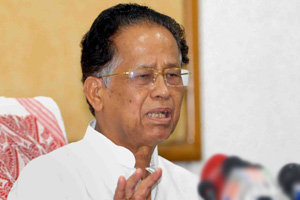Financially troubled Yes Bank on Saturday reported a standalone net loss of ₹ 18,560.31 crore for the third quarter of the financial year 2019-20. This is amongst the biggest losses reported by the India Inc.
At present, the private lender is under a moratorium and is controlled by the office of the administrator appointed by the RBI.
The bank had reported a net profit of ₹1,001.85 crore during the corresponding period of the previous financial year.
Besides, the bank's total income fell to Rs 6,268.50 crore from Rs 8,849.81 crore earned during the October-December quarter of the previous fiscal.
On consolidated basis, Yes Bank reported a net loss of ₹18,564.24 crore for the December quarter from a net profit of Rs 1,000.57 crore in the corresponding period of the previous fiscal.
The independent auditor's review report on the consolidated results pointed out that there is a "material uncertainty related to going concern" of the bank.
"The said assumption of going concern is dependent upon the degree of success of the final reconstruction scheme, the quantum of capital infused into the bank and the bank's ability to stabalise its deposit balances post withdrawal of the moratorium by the RBI. Our conclusion is not modified in respect of this matter," the auditor said.
Furthermore, the bank recognised additional loans of ₹ 5,150.2 crore as NPAs and related provisioning requirements of ₹772.5 crore for the quarter ended December 31, 2019.
The bank has recognised an additional provisions of ₹15,422.0 crore in the quarter ended December 31, 2019.
Last week, the RBI placed Yes Bank under moratorium and capped the withdrawal limit at ₹50,000 till next Wednesday.
Additionally, the central bank also superseded Yes Bank's board of directors and appointed former SBI CFO Prashant Kumar as its administrator.
Meanwhile, Kumar has been appointed as the new Chief Executive Officer of the financially troubled lender. He will take over his new responsibilities once the moratorium on the stressed lender is lifted on Wednesday.
Apart from Kumar, Sunil Mehta, former non-executive Chairman of Punjab National Bank, will take over as the non-executive Chairman of Yes Bank.
Other board members include Mahesh Krishnamurthy and Atul Bheda, both as non-executive Directors.
Additionally, six private lenders have joined the SBI to rescue Yes Bank with Federal Bank committing ₹300 crore by subscribing to 30 crore shares of ₹2 each at a premium of ₹8 per equity share.
The six private lenders have now committed an investment of ₹3,700 crore in the cash-strapped private sector bank.
On Friday, ICICI Bank and Housing Development Finance Corporation (HDFC) Ltd had announced that they will be investing ₹1,000 crore each in Yes Bank's equity. Axis Bank and Kotak Mahindra Bank will be investing ₹ 600 crore and ₹500 crore, respectively, while Bandhan Bank will invest ₹300 crore.
The SBI board has already approved up to 49 per cent stake purchase in Yes Bank, as per the RBI's reconstruction scheme for the lender. It had said on Thursday that an investment of ₹7,250 crore would be made in Yes Bank to pick up₹ 725 crore equity shares.
 Guwahati, May 16: Assam Chief Minister Tarun Gogoi today announced that he will resign taking full responsibility for the party's dismal performance in the Lok Sabha elections in the state.
Guwahati, May 16: Assam Chief Minister Tarun Gogoi today announced that he will resign taking full responsibility for the party's dismal performance in the Lok Sabha elections in the state.




Comments
Add new comment